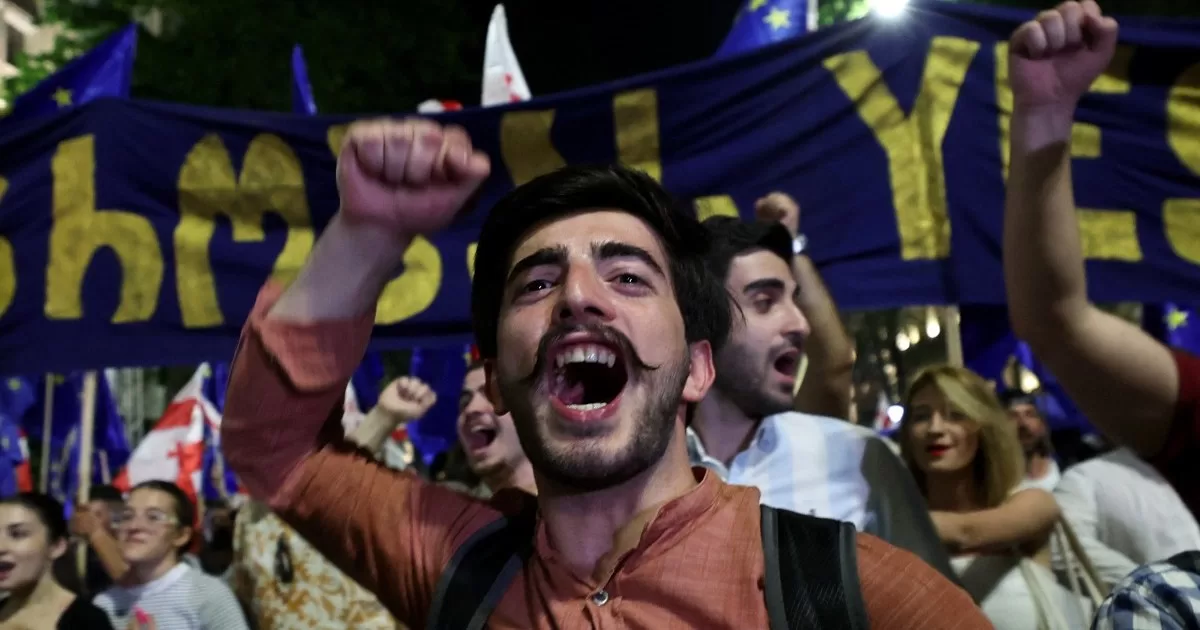About 20,000 people joined the “March for Europe” on Sunday, calling on the government to scrap the “foreign influence” bill. The European Union has warned that the legislation, which would act against political and civil outfits receiving funds from outside the country, could undermine Tbilisi’s European aspirations.
There have been mass antigovernment protests since mid-April, when the governing Georgian Dream party reintroduced the plan to pass the law, which critics say resembles Russian legislation used to silence dissent.
Waves of similar street protests, during which police clamped down harshly with tear gas, forced the party to drop a similar measure in 2023.
Police have clashed with protesters during the latest rallies triggered by the revival of the bill.
A kilometre-long procession, which featured a huge EU flag at its head, stretched out along Tbilisi’s main thoroughfare towards parliament.
At one point during the largely peaceful rally, demonstrators attempted to break through a police cordon outside the parliament building to hoist an EU flag. Police used pepper spray without warning.
The Ministry of Internal Affairs said in a statement that “the protest turned violent” and that “demonstrators physically and verbally confronted law enforcement”. After midnight, hundreds of riot police were deployed in the area.
To counter days of antigovernment protests, Georgia’s governing party announced a rally on Monday, when a parliamentary committee is set to hold a second reading of the bill.
If adopted, the law would require any independent NGO and media organisation receiving more than 20 percent of its funding from abroad to register as an “organisation pursuing the interests of a foreign power”.
Georgian President Salome Zurabishvili, who is at loggerheads with the governing party, has said she will veto the law.
But Georgian Dream holds a commanding majority in the legislature, allowing it to pass laws and to vote down a presidential veto without needing the support of any opposition MPs.
Georgia’s bid for EU and NATO memberships is enshrined in its constitution and, according to opinion polls, supported by more than 80 percent of the population.
Georgian Dream insists it is staunchly pro-European and that the proposed law aims only to “boost transparency” of the foreign funding of NGOs.
But critics accuse it of steering the former Soviet republic back towards closer ties with Russia.
“This law, as well as this government, are incompatible with Georgia’s historic choice to be an EU member,” said the leader of the opposition Akhali party, Nika Gvaramia.
EU chief Charles Michel has said the bill “is not consistent” with Georgia’s bid for EU membership. It “will bring Georgia further away from the EU and not closer”, he said.
In December, the EU granted Georgia official candidate status. But before membership talks can be formally launched, Tbilisi will have to reform its judicial and electoral systems, reduce political polarisation, improve press freedom and curtail the power of oligarchs, said Brussels.
Once seen as leading the democratic transformation of ex-Soviet countries, Georgia has in recent years been criticised for perceived democratic backsliding.
